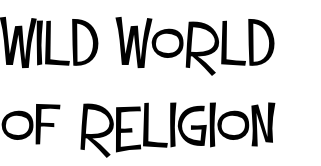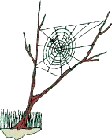

The following websites have extensive profiles and documentation regarding a wide variety of religious groups, ideas and teachers. Inclusion here should not be taken as an endorsement of all the material on a site, particularly any subjective evaluation of the factual material presented. These links are provided specifically as research resources for those wishing to delve more extensively into topics covered on this Field Guide website.
From the homepage of the AI website:
The Apologetics Index 'family of web sites' provides nearly 43.000 pages of research
resources on religious cults, sects, new religious movements, alternative religions,
apologetics-
These resources reflect a variety of theological and/or sociological perspectives.
While the publishers of Apologetics Index operate from an orthodox, evangelical Christian point of view, the intent of this site is to provide research resources from a variety of perspectives.
Therefore, unlike many other websites that deal with the issues we address, many topics on this site include links to:
Christian
non-
secular
research resources, presented from:
neutral
pro, and/or
contra
viewpoints. In other words, while we'll usually give you our informed opinion, we also encourage you to do your own research.
We don't just throw a lot of links at you. Instead we try to find the best, most helpful resources on each topic.
Purpose
Apologetics Index (AI) is a non-
to provide Christians with apologetics research resources on cults and sects (whether
defined theologically and/or sociologically), other religious movements, doctrines
and practices, religion trends, spiritual abuse, ministries and other topics of interest
-
help non-
The Apologetics Index site has a useful Characteristics of Cults checklist of the
social-
The Adherents.com website
From the Adherents.com home page:
Adherents.com is a growing collection of over 43,870 adherent statistics and religious geography citations: references to published membership/adherent statistics and congregation statistics for over 4,200 religions, churches, denominations, religious bodies, faith groups, tribes, cultures, movements, ultimate concerns, etc. The religions of the world are enumerated here.
Basically, researchers can use this site to answer such questions as "How many Lutherans live in Wisconsin?", "What are the major religions of India?", or "What percentage of the world is Muslim?" We present data from both primary research sources such as government census reports, statistical sampling surveys and organizational reporting, as well as citations from secondary literature which mention adherent statistics.
Famous and influential: Adherents.com also has detailed lists of influential and famous adherents of over 100 different religious groups (famous Methodists, famous Jews, famous Catholics, famous Zoroastrians, famous Jehovah's Witnesses, famous Theosophists, etc.), and lists of prominent people (actors, politicians, authors, U.S. presidents, artists, musicians, Supreme Court justices, film directors, etc.) classified by religious affiliation. These lists are linked to thousands of detailed religious/spiritual biographies.
The Religious Movements Homepage Project of the University of Virginia
A website created in conjunction with a course on "New Religious Movements" offered by the University. The site has a sociological rather than theological approach to the material it presents.
Ontario Consultants on Religious Tolerance
Self-
"By "religious tolerance" we do not mean that everyone must accept other religions as truth. We can believe that members of another religion are hopelessly deluded, and still support their right to enjoy religious freedom.
We do not teach that all religions are the same. They are quite different. We do not teach that all religions are simply different paths to the same God. They clearly are not. They teach very different paths to different gods and goddesses. They have entirely different beliefs about deity, religious belief, sexual behavior, family structure, etc.
Some of our policies:
We feel that the best way to counteract religious intolerance is through education.
Thus, we try to explain the full range of religious beliefs and practices. On our
essays which deal with Christianity, we describe the beliefs of both conservative
and liberal Christians. We some times also describe the belief of first and second
century Christians as well. Similarly, on controversial topics involving religion,
like abortion access and equal protection for homosexuals, we explain all sides to
each topic. These policies make us a very different religious web site. Almost all
the others promote a single point of view.
We use the same definition of the word "Christian" as do pollsters and government census offices: we include as Christian any person or group which seriously, thoughtfully, prayerfully considers themselves to be Christian. About 88% of Americans and Canadians are Christian by this definition. We recognize that many conservative Christians have a more restrictive definition of what it means to be a Christian.
The Ross Institute Internet Archives for the Study of Destructive Cults, Controversial
Groups and Movements
Self-
This website was created to offer the public a resource of information concerning controversial and/or potentially unsafe groups, which may have drawn some concern, attention and/or interest. Some groups listed and/or mentioned may have been called "cults." But the mention and/or inclusion of a group or leader within this website does not define that group as a "cult" and/or necessarily denote an individual, organization or group mentioned as either destructive and/or harmful. Instead, visitors to this website must exercise their own judgment after reviewing and considering the information provided.
Here you will find an archive that contains thousands of documents, which includes news stories, related research, reports, court records, book excerpts, personal testimonies and hundreds of links to outside reference resources."
Unless otherwise noted, all original material on this Field Guide website
is © 2001-
Careful effort has been made to give credit as clearly as possible to any specific material quoted or ideas extensively adapted from any one resource. Corrections and clarifications regarding citations for any source material are welcome, and will be promptly added to any sections which are found to be inadequately documented as to source.
Return to Top of Page and the Navigation Bar

Web Resources for
Religious Research